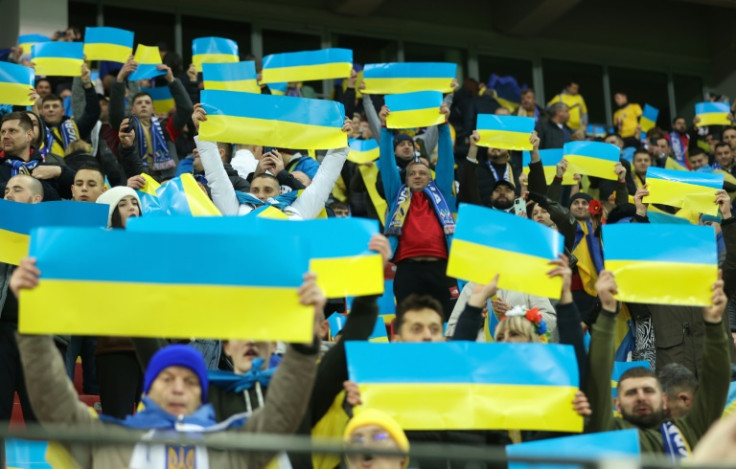Ukraine 'Very Concerned' Over Russian Olympics Call: Sports Minister

The Ukrainian government is "very concerned" by the call from sports federations and National Olympic Committees to allow Russian and Belarusian athletes to compete at next year's Paris Olympics, its acting sports minister has told AFP.
Matviy Bidnyi said Kyiv was concerned that the move gave the impression that the International Olympic Committee (IOC) "does not want to demonstrate the necessary leadership in the matter of Olympic fairness and justice."
Bidnyi -- who replaced his former boss Vadym Gutzeit when he was fired in November -- was reacting after the request to the IOC on Tuesday considerably boosted the hopes of Russian and Belarusian athletes to compete as neutral athletes in Paris.
The IOC is yet to make a final ruling on whether competitors from Russia and Belarus, a key ally of Moscow in its Ukraine offensive, will be permitted to take part in the Games that run from July 26 to August 11.
The IOC has said it will decide "at the appropriate time".
Bidnyi said he hoped the IOC would act in as responsible a fashion as it has done on previous occasions since the war began when Russian President Vladimir Putin launched the invasion in February last year.
"As aptly stated by President Volodymyr Zelensky: 'Obviously, any neutral flag of Russian athletes is stained with blood'," said Bidnyi.
"We count on a responsible decision and leadership of the IOC, which will not allow Russia to use sport for military propaganda.
"Even if it's sport under a neutral flag."
He cited how the IOC had decided not to formally invite Russia as a team to the Games and more recently that the IOC had shown "responsible leadership" by suspending the membership of the Russian Olympic Committee.
"I remind you that Russia is the only country that has violated the Olympic truce three times," said Bidnyi, referring to 2008, 2014 and 2022.
"They do not respect the fundamental values of Olympism: excellence, respect, and friendship. Instead, we respect the principle of neutrality, but 'neutrality' is possible only in peacetime.
"When there is a war and one nation with its passports is destroying another nation, then 'neutrality' becomes irresponsibility."
Bidnyi said there was only one way that including Russian and Belarusian athletes was acceptable.
"Refusal of the Russian passport -- this is the only possible way today for an athlete to prove Olympic excellence is his first priority, and the athlete does not take on a share of responsibility for the killings of Ukrainians," said the 44-year-old.
He said Ukraine welcomed the IOC's move to allow athletes who had previously competed for Russia to switch nationalities.
"These athletes have proven by their actions that they do not support the Russian war."
Bidnyi claimed that Ukraine's desire for Russian and Belarusian athletes to be banned has support from 40 countries.
However, the threat to boycott the Paris Games appears to have receded as many Ukrainians have expressed their wish to strike a blow for their country by beating the Russians in the sporting arena.
Bidnyi says he cannot imagine how Ukrainian athletes feel when they face Russians and Belarusians.
"Morally, it is very difficult to enter the arena with those who want to kill you," he said.
"Not figuratively, but literally kill you.
"Our athletes constantly face provocations from the Russians and cannot be in a normal emotional state because of this.
"I can't imagine how I would feel if I had to compete with the Russians. It's very difficult."
Bidnyi argued it was likely Russian athletes were not far removed from the battlefield, even if they are not linked to the military.
"There is a well-known sociological theory that any two people on the planet are separated by only six handshakes," he said.
"Imagine that you enter the arena, and in front of you stands a person, behind whom, a few handshakes away, stands a Russian soldier who shot children in Bucha. Just imagine this."
Bidnyi says the war "has touched everyone" and taken a heavy toll on the sporting community, including prospective Olympians.
"We have confirmation that 397 athletes and coaches were killed," he said, including athletes who could have gone to the Olympics, such as shooter Yegor Kigitov or boxer Maksym Galynichev.
"As for sports infrastructure, our losses have already exceeded 500 facilities for a total of over 300 million dollars.
"They can be rebuilt, but human lives cannot be returned."
© Copyright AFP 2024. All rights reserved.











